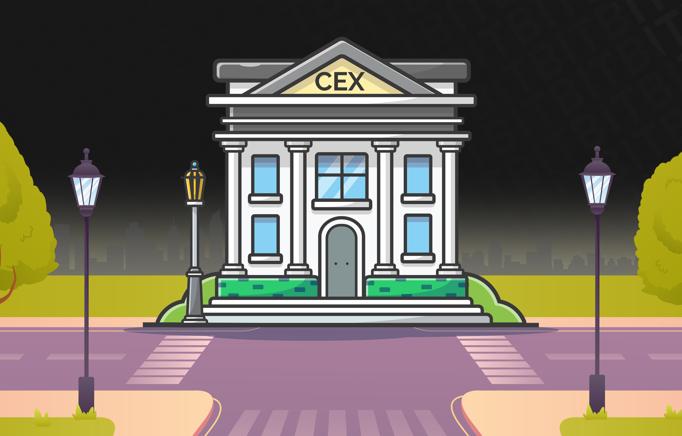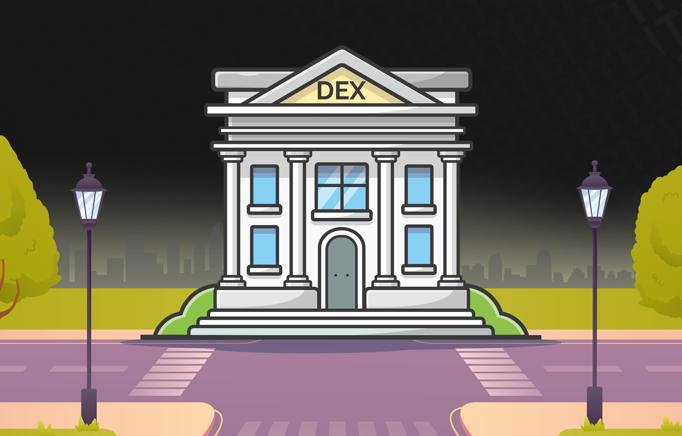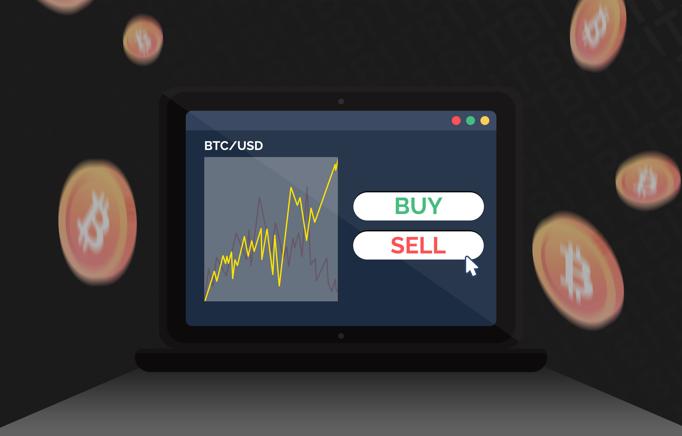How Does a Crypto Exchange Work?
Tiền điện tử cho người nâng cao
Các bài viết khác
To buy & sell cryptocurrencies and other digital assets, you would most likely head towards a reputable crypto exchange or digital currency exchange (DCE) to engage in the thrilling escapade of crypto trading.
Cryptocurrency exchanges provide a convenient and user-friendly digital platform for traders to transact digital currencies, just like how a traditional exchange would be regarded as the hub for buying & selling stocks.
Typically, crypto exchanges are privately-owned and offer the technical means to convert fiat money such as the U.S. Dollar or the Euro, to cryptocurrencies listed on the exchange such as Bitcoin or Polygon, or vice-versa back to a fiat currency.
Depending on the crypto exchange, they can offer an extensive range of services, notably the price discovery mechanism which tracks trading activity, or the ability to store crypto in a safe & secure wallet.
How Does a Crypto Exchange Work?
In simple terms, cryptocurrency exchanges provide the platform to use ordinary fiat currency to buy and sell crypto assets, such as coins, tokens or NFTs. Depending on the exchange itself, a user may also convert crypto back to fiat, move funds to different wallets, and store assets.
Different cryptocurrency exchanges work differently, and simply put, the main two types of crypto exchanges are centralized exchanges (CEXs) and decentralized exchanges (DEXs), with each having the pros and cons which characterize them.
How do they vary?
Centralized Exchange (CEX)

To best describe a centralized crypto exchange or CEX, envision a classical stock exchange like the NYSE. They act as an intermediary between buyers and sellers of digital assets, and the exchange generates revenue through transaction fees and commissions.
CEXs are quite similar to traditional stock exchanges. They are centralized, or in other words, well-monitored in the jurisdictions in which they operate. Among the most popular centralized exchanges are Binance, Kraken, and the innovative BITmarkets.
Benefits
Due to the inclusion of an intermediary which co-ordinates & facilitates cryptocurrency trading, CEXs offer an extra layer of reliability and security when transacting. Well-developed centralized platforms bestow high levels of comfort for those entrenched in the crypto world.
Another perk of CEXs would be their upmost degree of user-friendliness. Since they’re similar to brokerages or renowned stock market exchanges, trading on centralized exchanges is quite easy as it’s familiar to mainstream investors and traders.
Decentralized exchanges (DEXs) are more complex than that. Typically, one would need to use specific wallets and engage in peer-to-peer transactions to trade crypto, which can be complex.
One more significant edge of centralized exchanges would be the ability of leveraging trades. By borrowing from the exchange, traders can multiply their returns from smaller increments in price change, but this is also subject to magnified losses when the market isn’t in your favor.
Limitations
While CEXs are reliable, secure & user-friendly, they come with some limitations, and a notable drawback would be the risk of hacks. Centralized exchanges are managed by companies which hold client funds. As crypto popularity grows, so does the industry.
Hence, CEXs have become an attractive target for hacks and thefts. One instance of this happening would be the hack attack on BitMart, which suffered a large-scale security breach in December of 2021, resulting in losses of nearly $200 million.
Another catastrophic incident is when hackers breached the cybersecurity layers of Mt.Gox which lead to its collapse, as over 850,000 bitcoins have been stolen from the wallets of traders.
High transaction fees which are typically incurred by traders on CEXs represent another drawback, which unlike peer-to-peer mechanisms, charge above-average transaction fees. This is very unfavorable for big-money investors, as they’ll keep paying high transactions when buying & selling cryptic assets on CEXs.
Decentralized Exchange (DEX)

On the other side of the spectrum are decentralized exchanges (DEXs), which have been rising in fame over the past several years. What makes DEXs different than CEXs is that they rely on smart contracts and peer-to-peer transactions to facilitate crypto transactions, rather than depending on third-party intermediaries.
Among the most popular DEXs out there are PancakeSwap, Uniswap and Kyber. While they lack in popularity when compared to the behemoth CEXs, trading on decentralized exchanges has its unique merits.
Benefits
Unlike CEXs, decentralized exchanges provide custody of assets, meaning that one wouldn’t need to transfer their assets to third parties. As a result, the exchange and its participants are less prone to cyberattacks or hacks.
Since DEXs facilitate transactions via a peer-to-peer mechanism, market manipulation is very much prevented and users are protected from the risks of counterfeit trading and hoaxes.
Limitations
There’s less censorship in DEXs as they don’t require users to complete know-your-customer (KYC) forms, making decentralized exchanges more private than CEXs. This presents the fundamental risks of financial fraud, money laundering & identity theft.
Not just that, but DEXs are typically complex. Users must remember the keys & passwords to their crypto wallets. If they’re forgotten, the assets are lost forever and cannot be retrieved.
Another complexity issue is that DEXs aren’t made for beginners, but more for sophisticated users which are more tech savvy, as they require more technicality know-how when executing transactions, managing wallets and converting assets.
Last but not least, is the unpopularity of decentralized exchanges which presents liquidity issues. According to Corporate Finance Institute, 99% of crypto transactions are on CEXs, and therefore, DEXs are burdened with a lack of liquidity.
This highlights the difficulty of always finding buyers and sellers of cryptocurrencies, and that diminishes the seamless experience which crypto trading should provide in essence.
Summary
- Cryptocurrency exchanges are propelling in popularity. The total market capitalization of digital assets flowing as of October of 2022 exceeds $935 billion; at some point, the market cap of crypto was slightly under $3 trillion.
- Adverse macroeconomic conditions of 2022 caused by macropolitical instability, red-hot inflation and supply shortages have weighed down on not only cryptocurrency investments but also the majority of globally-traded assets.
- There are two main types of cryptocurrency exchanges. Centralized exchanges are well-monitored and user-friendly, but are subject to frauds due to their inclusion of corporations as intermediaries between buyers, sellers and the exchange itself.
- Decentralized exchanges are often more secure than CEXs, and provide users with the full custody of their assets, but come with complexity and liquidity issues, due to their high technicality and low popularity, respectively.
- When choosing a crypto exchange, you need to first make sure that you can trade the digital assets you’re interested in, and that it provides a user-friendly platform with an inclusive set of services which can bolster your journey of prosperity.


